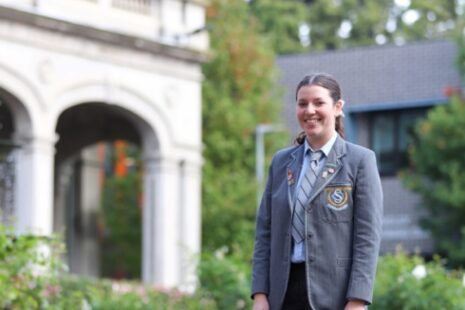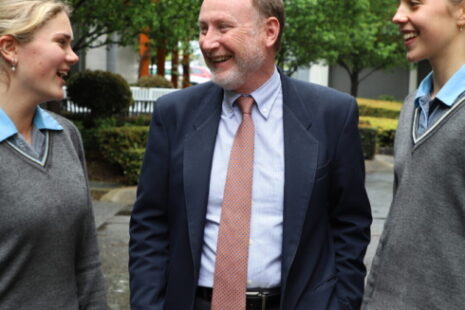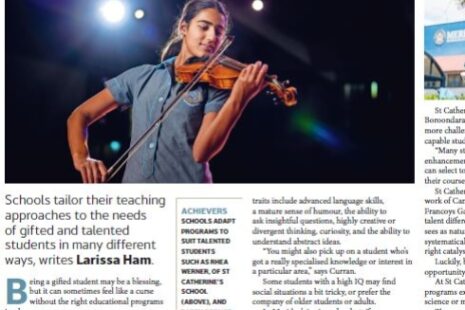Early Morning Maths Builds Skills and Confidence

Spatial thinking is a fundamental component of learning
Would you choose to arrive at school early to engage in a range of non-compulsory mathematical activities at 8.00am? The answer in St Catherine’s Junior School is a resounding ‘yes!’
Students from Years 1 to 6 are able enjoy one session each week to work on a range of Mathematical projects.
The Morning Maths activities have been developed to complement and extend the Mathematics curriculum in our classrooms. The nature of the activities offered has been developed from observations of students’ responses to Mathematics questions in assessments or classroom programs, and consideration of Mathematics as it relates to educating girls. The projects have also been designed to be engaging and motivating.
From my experience teaching Mathematics in upper junior school classrooms, it became clear that questions and topics involving spatial skills could be quite challenging. Researching relevant articles about the development and importance of spatial thinking found, it was a fundamental component of the prep to Year 12 curriculum and, it was important to develop spatial skills in students from an early age.
Spatial skills are a significant component not only in the study of Mathematical concepts, but also in Science, Technology, the Arts and everyday life. Dr John Munro, a lecturer in education at Melbourne University has described spatial knowledge as an understanding of shapes, the properties of shapes and their position or location in space.
Whilst there has been discussion regarding spatial ability across gender – with suggestions boys may be advantaged in the development of their spatial skills and therefore their Mathematical skills – research also states spatial skills are able to be enhanced and developed with practice.
With future careers in Mathematics, Engineering, Science, Technology and the Arts in mind, Morning Maths provides a stimulating program that develops spatial skills. Program activities include measurement, symmetry, geometry, tessellation, two dimensional and three dimensional shapes, tangrams and making complex models from written instructions. The activities have been designed to not only achieve practical outcomes using geometric/spatial concepts but also to promote a positive, confident attitude towards Mathematics.
Of course, logical thinking, problem solving and other Mathematical skills are integral components of the Morning Maths program as well. Depending on the project, students either work independently to produce their own product or, in groups to contribute one outcome.
The activities at each Year level include:
Year 1: Using iPads with Dash and Dot robots, the Year 1 students have been practising their coding skills.
Year 2: Development of two dimensional nets into three dimensional shapes. The shapes were then used to construct the familiar buildings of St Catherine’s School. Finally, the buildings were placed on a grid to show their correct position in relation to each other.
Year 3: Science and Mathematics combined when Year 3 students made their own tetrahedron kite.
Year 4: Science and maths combined when Year 4 made their own kaleidoscope.
Years 5 and 6: Bridges were designed and built using 200 icypole sticks. The sticks were formed into strong geometric shapes which were put together to make a bridge. Weights were used to check the maximum load for each bridge and students were required to make hypotheses regarding the load capacity.
Morning Maths is an opportunity to use Mathematical materials, concepts and thinking to hypothesise, learn and create as well as empowering our Junior School students to be confident in their Mathematical skills and abilities.
Mrs Glenda Lingard
Junior School Head of Extension and Learning Support





